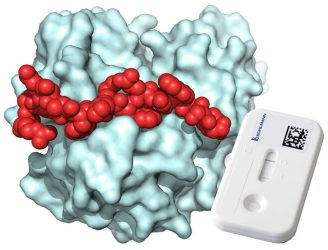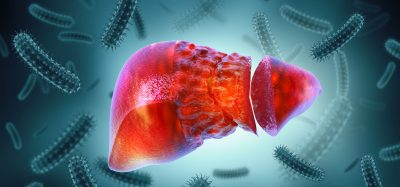Diagnosing inflammatory diseases with synthetic peptides
Posted: 18 May 2023 | Izzy Wood (Drug Target Review) | No comments yet
Researchers from Switzerland identify peptides that detect and measure a key biomarker in inflammatory conditions.


Scientists at the École Polytechnique Fédérale de Lausanne (EPFL), Switzerland, have developed a promising new method for diagnosing and monitoring common inflammatory disorders using peptides instead of antibodies. The research team, led by Professor Christian Heinis at EPFL, successfully isolated peptides that can detect and measure the protein calprotectin, a key biomarker in conditions such as ulcerative colitis, Crohn’s disease, and rheumatoid arthritis. The study was published in Nature Communications.
Currently, the measurement of calprotectin concentrations in patient samples relies on antibody-based assays. However, these assays can yield inconsistent results due to variations in the antibodies used and their binding sites on the protein. Antibodies can also lose their effectiveness over time. To overcome these limitations, the researchers turned to peptides as an alternative detection method.
Peptides are short sequences of amino acids that can bind to proteins with high affinity and selectivity. Unlike antibodies, peptides can be chemically produced with high purity and homogeneity. They are also more stable over time and less expensive to produce. Additionally, peptides can be attached to specific locations on surfaces, making the development of diagnostic assays more precise and controlled.
Under the guidance of Christian Gerhold, CTO of BÜHLMANN, the research team developed human calprotectin ligands based on peptides. Using a library of over 500 billion different peptides, Cristina Diaz-Perlas, a postdoctoral researcher in Heinis’s group, successfully isolated several peptides capable of binding to calprotectin. One peptide in particular demonstrated a tight binding with a dissociation constant of 26 nM, making it a strong candidate for diagnostic tests.


X-ray structure of the 18-amino acid peptide (red) bound to the inflammation marker calprotectin (light blue). A lateral flow cassette is shown. (CREDIT:
Christian Heinis (EPFL)/Joëlle Jourdan (BÜHLMANN AG))
Notably, the peptide not only bound to a large surface region of calprotectin but also specifically targeted the form of calprotectin relevant in patient samples. The team incorporated the peptide into lateral flow cassettes, enabling accurate detection and quantification of calprotectin. In a proof-of-concept study, the researchers used this setup to measure calprotectin concentrations in serum samples obtained from patients.
The development of this peptide represents a significant breakthrough as it is the first synthetic affinity reagent generated specifically against calprotectin. Christian Heinis emphasises the potential impact of this research on patients with inflammatory diseases, stating that further testing is underway to translate the assay into a product that can enhance the diagnostic power of this important biomarker.
Related topics
Amino Acids, Disease Research, Peptide Therapeutics, Proteomics
Related conditions
inflammatory disorders
Related organisations
BÜHLMANN, Ecole Polytechnique Fédérale De Lausanne (EPFL)
Related people
Christian Gerhold, Christian Heinis







